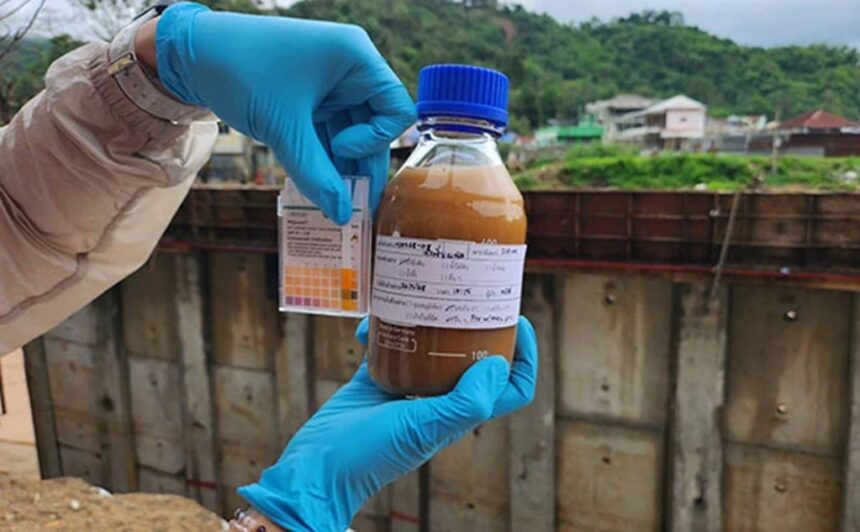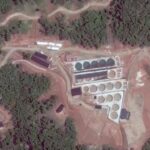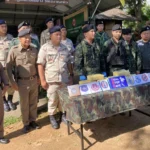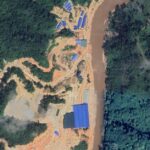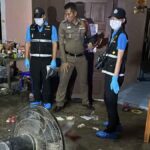CHIANG RAI – Researchers from Mae Fah Luang University in Chiang Rai collected new water samples from the Sai River after the second round of flooding. Their goal was to confirm the presence of arsenic and lead, which could put people living along the river at risk.
The team plans to bring these findings to leaders in Thailand, Myanmar, China, and the Wa State, urging them to address the issue quickly.
The Sai River flows along the Thai-Myanmar border, starting in the Wa-controlled area of Shan State in Myanmar. Recently, heavy rain caused the river to flood communities in Mae Sai, Chiang Rai, and Tachileik in Myanmar. The researchers focused on water near Huafai and Tham Phajom, the first points where the river enters Thailand, to check for heavy metals and compare results to safety standards.
Earlier, on 1 May, the same team tested water from this area and found high levels of arsenic and lead. These findings matched results from the Pollution Control Department and other environmental agencies.
This time, the team is also checking for other chemicals to see if there are more risks after the floodwaters move through homes and markets.
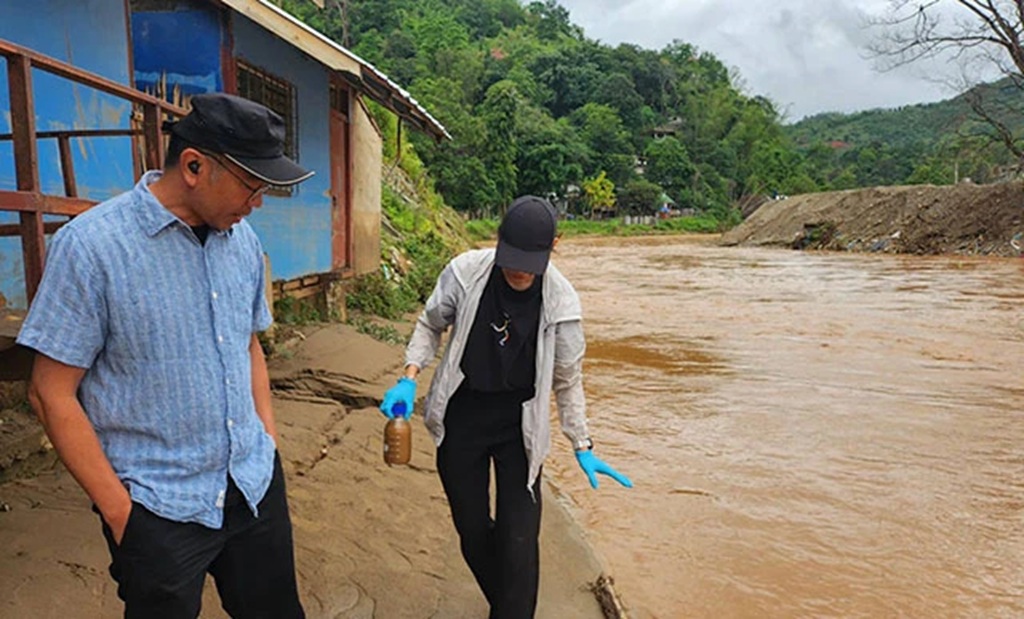
Authorities have already found unsafe levels of arsenic and sometimes lead in parts of the Sai, Kok, and Mekong rivers. Satellite images show a large number of mining sites, especially near Muang Sat and Muang Yon in the Wa-controlled areas of Shan State. Researchers estimate there are over 40 open-pit mines, mainly for gold, manganese, and rare earth minerals. Some mines sit close to the Kok River, both east and west, adding to the risk of contamination.
On 5 June, which is World Environment Day, local groups, NGOs, and academics plan to hold an event called “Chiang Rai Residents for Mine Closure and River Recovery” near the Mae Fah Luang Bridge over the Kok River. Activities will include religious ceremonies and traditional river blessings by local ethnic groups.
Afterward, participants will march from the bridge to the Chiang Rai provincial hall to submit a letter to the governor. They will outline the pollution and health problems and ask for solutions from key leaders: Prime Minister Paetongtarn Shinawatra, Myanmar’s Senior General Min Aung Hlaing, China’s President Xi Jinping, and Wa leaders in Shan State. The event will also feature talks and other activities to raise awareness about protecting the region’s rivers.




